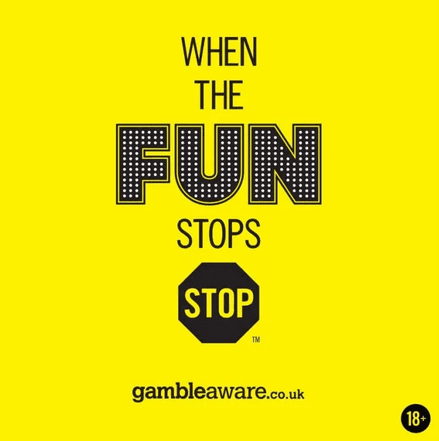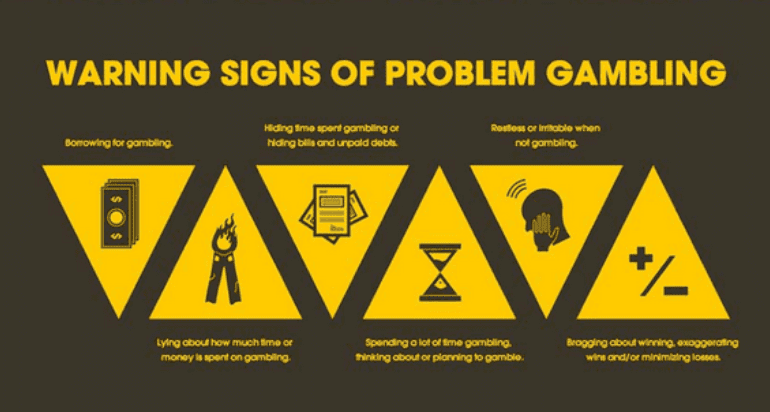Not only has the online gambling industry grown rapidly over the last decade or two, but so have the regulations. The accessibility to slots, casino and betting has become a growing problem for players who struggle with limitations, and who can be vulnerable to the enticements of that ‘big win’. The need for self exclusion and having the ability to opt out of casino gaming became very apparent and led to the introduction of the UK Gambling Commission (UKGC) on the 01st of September 2007. Since then, they have brought in various forms of legislation to ensure as much as possible, that all players are protected from self-harm in the form of gambling over their limits.
We believe that all players should be aware of the ability to self-exclude on a casino. So, we’re here to explain what it means to the player and how it works should you feel that you are struggling. For most gamblers there is nothing wrong with the thrill of playing your favourite game and winning. But an addiction to gambling can have a devastating impact on not only the player, but their families and loved ones too. This is where opting out through self-exclusion comes in, so what exactly does it mean?
 What is self-exclusion?
What is self-exclusion?
The ability to self-exclude means that should you feel that you are out of control with your betting, you can opt on the gambling site to block yourself from playing. This tends to be for a specified time and means that you cannot access any of the site’s games or facilities until the end of that predetermined period. The site will also not send you any promotional material or contact you via email, text, or telephone. In most cases this is for players who need to break away for a minimum of six months, but you can choose up to five years should you need it.
All gambling sites must now participate in the self-exclusion scheme to legally comply with their UKGC licence. The scheme is ran through an online multi-operator called GAMSTOP, which is a not-for-profit organisation. Once the gambler has registered their desire to opt out and they have chosen an exclusion period, then they will not be able to cancel until said timeline has elapsed.
Whether the player recognises that they have an addiction can be the difficulty behind the opt out process, because in reality this will only work if they recognise they have a problem. The inherent nature of addiction means that many players would struggle not to access their chosen casino and as such would not make the choice to self-exclude in the first place.
There are additional safeguards conducted by the betting sites known as source of wealth or source of funds checks. These will occur if the gambling site feels that the player is overextending themselves or betting out of their usual pattern. They will request documents from the player to confirm that they in fact have the money they are betting with. This can include payslips, bank statements, pension documents or even details of an inheritance such as a will.
For those who do make the decision to block themselves from any enticements, it is the betting operator’s responsibility to comply in accordance with their wishes. We saw in 2017 what happens to a site if they fail to protect vulnerable players, when the online betting operator 888 was fined £7.8 million by the UKGC. This gambling commission investigation into self exclusion was due to their failure to ensure that their online system worked, after more than 7,000 players who had opted out from the site could still access their gaming account.
The majority of betting sites now have distinguishable sections on their pages, so that players know what opting out is, how to do it and who to contact should they need any advice or additional support.
For many, this is seen to be a step in the right direction and provides many players who recognise they may have a problem, with a solution. If you feel that you may need additional support or advice about a loved one, then you can contact the National Gambling Helpline. They offer free information, support and counselling for problem gamblers who are UK based.
Why would I choose self-exclusion?
 There isn’t really one finite reason why people choose to self-exclude from a betting site. But the ability to allow yourself the time to take control of your behaviours, as well as seeking support, can facilitate rehabilitation.
There isn’t really one finite reason why people choose to self-exclude from a betting site. But the ability to allow yourself the time to take control of your behaviours, as well as seeking support, can facilitate rehabilitation.
Every gambler will vary in their behaviours, and most will try to hide it from their loved ones. Signs that you or a family member, or friend may have a gambling addiction are.
- Struggling to spend time away from gambling or always thinking about it,
- Spending more money than you can afford and being unable to stop,
- Lying to family and friends about how much you spend, and the length of time spent playing/betting,
- Increasing your bets to recoup any losses,
- Borrowing money or selling possessions to either pay back any losses, or in order to gamble,
- Neglecting work, family and general daily activities, because of your need to gamble.
Should you feel that you relate to any of these points, then our recommendation would be to contact the National Gambling Helpline on 0808 8020 133. You can call seven days a week between 8am and midnight, and as we mentioned above, all calls from landlines and mobiles are free.
How to self-exclude
We imagine you are wondering ‘does gambling self exclusion work?’ The way to self-exclude will vary depending on the type of site you have chosen to gamble on. If it’s a larger brand, then you tend to find a ‘responsible gambling’ page at the bottom of the screen. Within that page there will be details on what it means and how to complete the process. For smaller betting sites you may have to speak to them, so head to the ‘contact us’ section and email a request to opt out. If you struggle to find any information, then use the sites search option and that should send you to the appropriate place.
The actual process of self-exclusion gambling will depend on the operator you are registered with. Say for example you have chosen Ladbrokes, then you can phone or email their support team on a specific opt out address. They also have an automated option which is available in your account settings. You will find that the automatic period given will be 6 months, but if you want, you can request more from the site.
Many of the larger operators are connected to each other and as such, by excluding yourself from one, you will be excluded from another. If you are in a position where you have taken the decision to opt out, then this may not be an issue for you, but it is something you should be aware of.
If you have chosen to opt out and you still have winnings in your account, then you need to contact the betting site and explain that you are looking for a self-exclusion refund.

We imagine for many players the idea of self-exclusion is difficult, so there is a software which will block any online gambling sites to completely remove the temptation from your screens. This means you won’t end up registering with another casino and continuing the same pattern. If you would like further information on self exclusion from all online gambling, then please head to Gamble Aware.
After reading this information we hope that you have everything you were looking for. Addiction and mental health are important issues and as such they should be taken seriously. The key to online gambling is that it should be fun, but when that stops you should be aware that help is available. Further guidance can be found via GamCare.org and Gamble Aware, on how to opt out and more importantly how to get help for a gambling addiction.